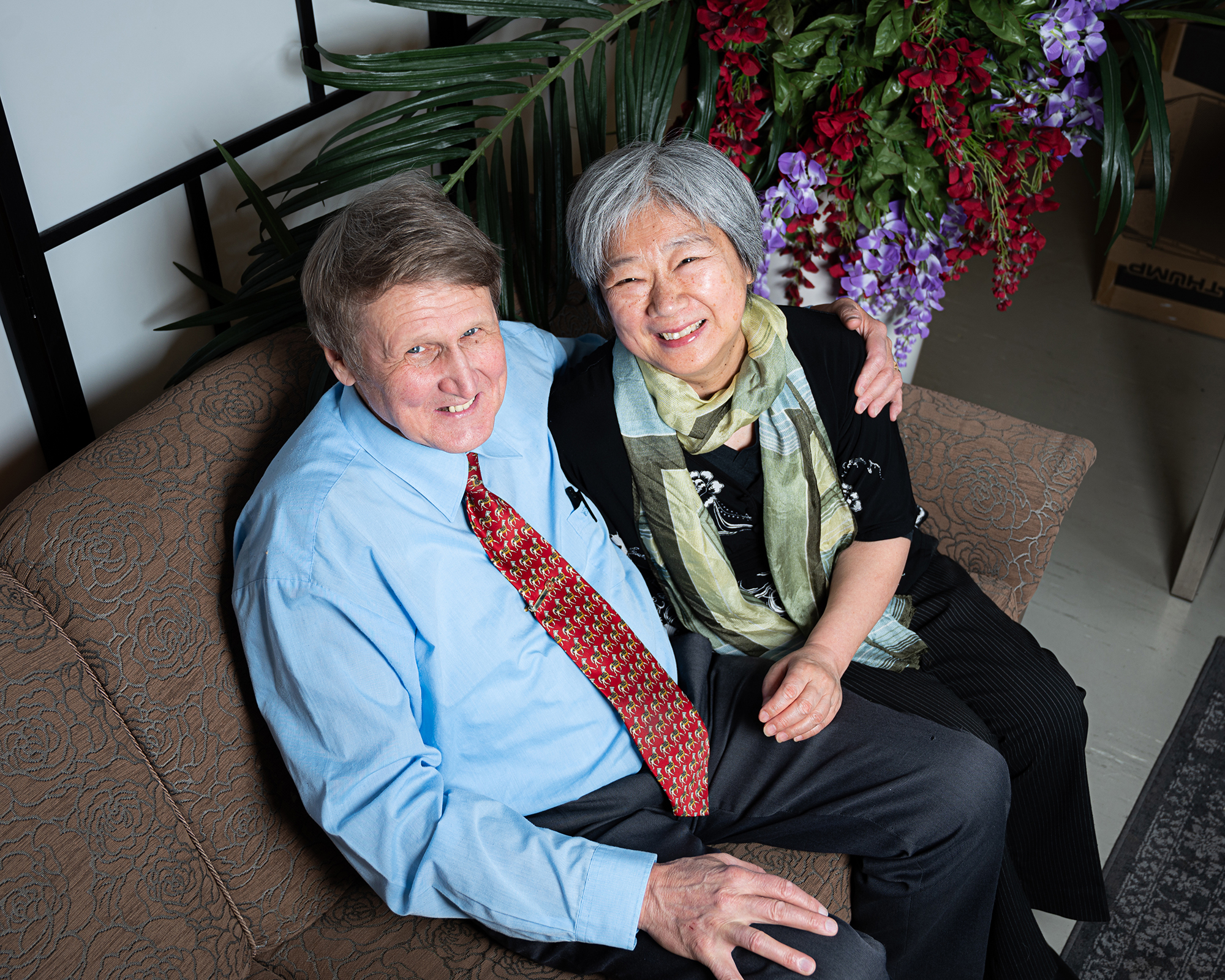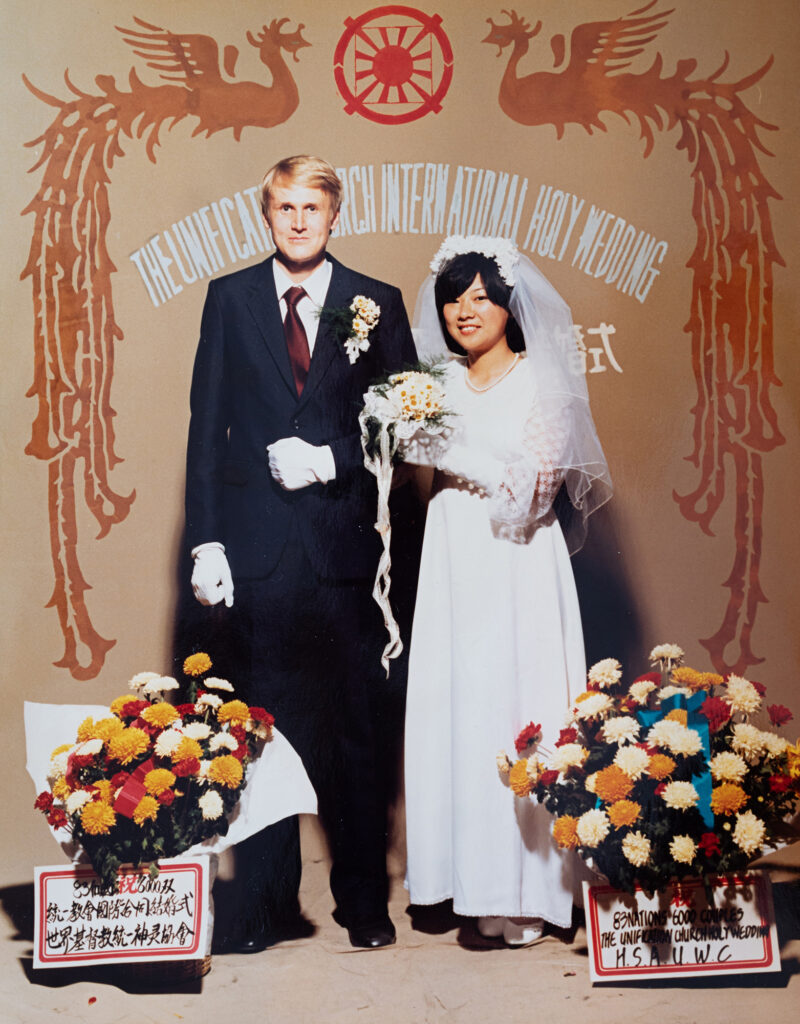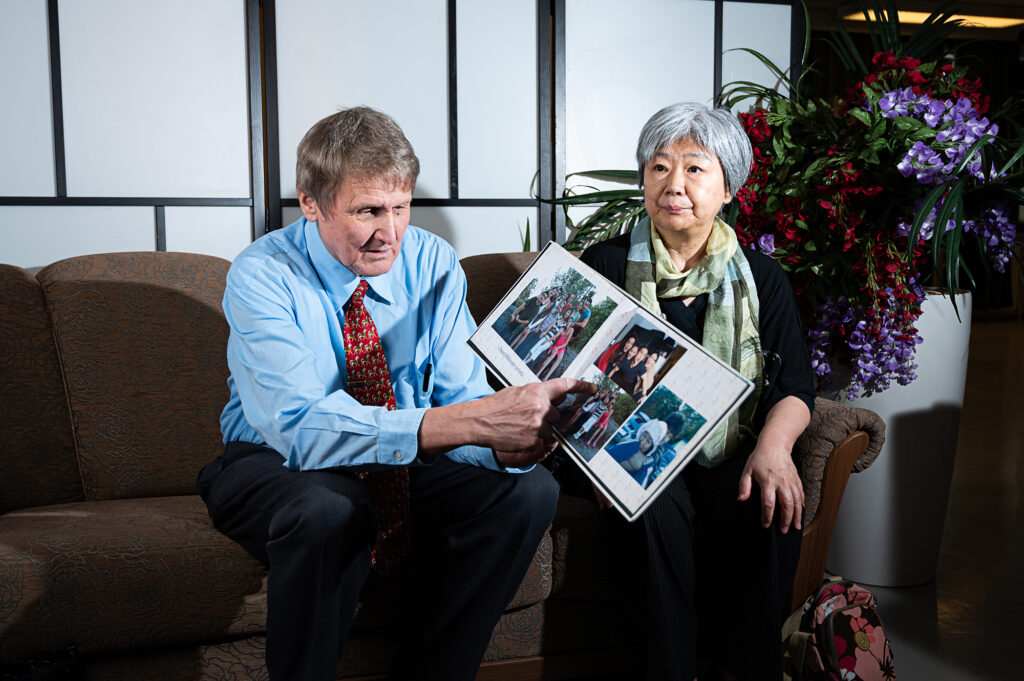Over four decades of intercultural marriage have taught Keijo and Sumiko a lot

Sumiko and Keijo have been married for 42 years. They have managed to overcome cultural differences and multicultural communication challenges.
Seblewongel Tariku
Sercan Alkan
Published 17.04.2024 at 3:19
Sumiko and Keijo Mikkanen were matched in 1980. Sumiko, 24, from Japan, received Keijo’s, 27, from Finland, picture by fax. The quality of the picture was poor, but she trusted her heart and accepted the match.
On Christmas day 1981 they met in Frankfurt, Germany. Both were members of the Unification Church that practices matching couples and mass weddings worldwide. Keijo and Sumiko were married in one of those events in Korea in 1982.
Sumiko and Keijo, after getting married, decided to improve their financial situation for their future home. They both returned to their home country to work and save money. For four years, they maintained a long-distance relationship.
Then, in 1986, they settled in Finland.
Everything wasn’t easy. Sumiko faced racism and experienced hurtful comments on the streets.
“I was walking down the street when a Finnish woman spat at me, accusing me of taking her apartment. She thought I was a refugee from Vietnam”, she says.
Still, the couple were able to build their life here. They opened a Japanese restaurant together with another couple in Helsinki, where Sumiko prepared sushi and Keijo worked alongside her.

From the beginning, Keijo and Sumiko knew that cultural differences would form a challenge to their relationship.
“Our disagreement stemmed from differing cultural perspectives on perception and action”, Keijo says. “Western way tends to prioritize external things, we want to strive to make things look good, while Japanese culture values internal understanding and sensitivity.”
Another thing that led to challenges was the different educational backgrounds of the couple. Sumiko studied English literature at the university. Keijo, on the other hand, describes himself as a “simple country boy from Finland”.
“I wasn’t much into studying”, he says. “I see things the simple way.”
The lack of common language leads to misunderstandings
Often misunderstanding arises more from gender differences and lack of communication than cultural differences, Sumiko points out. This became imminent when the couple had their first child.
“We didn’t understand each other and were immature”, Sumiko says.
The couple remembers a time when Sumiko went out from their home as their child was little. Keijo remembers that he prayed and felt desperate for her to return. After three hours, Sumiko came back and said: “You cannot manage, so I came back”.
“I think I was not sensitive enough for her and then she felt so bad,” Keijo says.
Rising multilingual offspring brought along new challenges.
The Mikkanen family lacked a common language. To the children, Sumiko spoke Japanese and Keijo Finnish. When speaking with each other, they used English. That lead to situation, where the children did not fully understand their parents’ discussions.
“They didn’t fully grasp from our conversations, whether we were arguing or happy”, Sumiko says. “When I for instance raised my voice, they automatically assumed that I was angry.”
Keijo remembers that sometimes the children would misinterpret his joyful expressions as negative.
“When I was smiling and watching my children, especially the girls sometimes thought I was looking down on them.”

Sumiko also finds it difficult to understand the Finnish educational system, since she spoke no Finnish.
Another difficulty was the children’s diverse appearances. One daughter looked more Finnish while others were more Asian.
“Some people thought I had had a relationship with another man”, said Sumiko. “Our children were asked, ‘if they were adopted or part of this family’? The questioning of children’s identity, at their sensitive young age made us suffer.”
Three of Keijo’s and Sumiko’s children have since married in different cultures themselves. The couple feels that marriages are more accepted and tolerated nowadays. The society has changed.
Understanding, acceptance, and love make the difference
Today, Keijo and Sumiko Mikkanen have been married for over 42 years. They’ve raised six children and three grandchildren. Since their children have already left the home, they now focus on each other.
During their careers Keijo worked in sales and customer service, and Sumiko as a cook. Despite Sumiko’s English degree, her career faced challenges in Finland. Now retired, Keijo volunteers to support immigrant integration.
Their journey has included both joys and hurdles. For example, communication issues, despite creating problems, can also be a source of fun, Keijo says.
“My wife’s mistakes, like ‘herra kirkko,’instead of ‘kirkkoherra’ make me laugh, and I find them very cute.”
The Mikkanens underscore the importance of marriage values and true love as the secret of their long marriage despite the challenges.
“Understanding and accepting two different cultures without one dominating is like a double richness”, Keijo says.
Sumiko talks about respecting each other’s privacy and interests and tells an example. Keijo, a typical Finnish man, isn’t big on romantic gestures like bringing flowers or having fancy date nights. Sumiko recalls a time when she returned from abroad, and he welcomed her at the airport with a flower:
“It didn’t feel natural.”
Intercultural relationships require communication
As of 2022, Finland had approximately 96,808 intercultural families, with 152,563 young people under 30 born into such families.
Research Director emerita Elli Heikkilä from the Migration Institute of Finland, who has extensively studied multicultural marriages, highlights the challenges faced by such couples: “Despite the cultural richness they bring, multicultural marriages tend to encounter more internal difficulties and social challenges compared to other couples.”
Heikkilä encourages couples to talk about important values already before marriage.
“If they don't, there can be hard times”.
Important topics that can potentially cause difficulties include family's common languages, raising children, sexuality, religion, celebrations, and friendships in multicultural marriages. Neglecting these aspects can lead to disagreements and, potentially, even to divorce.
One vital thing according to Heikkilä is gender roles. Western men can expect non-Western wives to behave in ways that would not be expected from a Western wife, she says.
This dynamic has been observed for example in Thai women who marry Finnish males, with elderly men sometimes expecting their Thai spouses to adhere to traditional roles, such as taking care of home and children and serving their husbands.